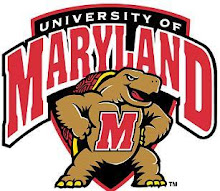As some of you may know there is now an alternative option for
comprehensive exam. Below is a step-by-step guide. For those of
you who still have concerns, a meeting to discuss this option will be
take place October 7 at 1:30 PM in Room 1101.
Jeff explained:
The department has revised the process for completing specialty
exams beginning this fall. Currently, students must sit for exams in
two of the department’s eight identified specialty areas. The new
system retains the requirement that students show mastery of two
fields within sociology. Further, students must sit for at least one
exam in one of our eight specialty areas as the process is currently
set up and may choose to sit for both exams in the current system.
However, students may now choose an alternative for one of the
two specialty exams. The alternative is described below.
A student seeking to complete an alternative for one of the specialty
exams takes the following steps:
1. The student forms a committee of three members, including one who
will act in the role of chair of the exam committee. The committee
members must all be regular faculty members in the Department
of Sociology. In special cases, students can petition the graduate
committee to have one committee member from outside of the
department. For these petitions to be successful, the person must
be a member of the Maryland graduate faculty, and the student must
make a strong case that the person adds expertise in an area of the
sociology literature that cannot be found inside the department.
The student and committee together define the substantive coverage
and label for the exam. The defining feature of this new system is
that it will allow students and faculty together to define areas of
concentration. At the same time, there is an expectation that the
content of the exam reflect a coherent body of theory and research
in sociology of sufficient breadth. The topic area of the alternative
exam cannot be subsumed entirely within one of our existing areas.
The goal of this alternative is to allow students to draw on the
strengths of our faculty. Thus, the expectation is that committees
will be formed to draw on the expertise of our faculty, and students
should not expect faculty to sit on committees in topic areas outside
of their areas of expertise.
2. The student and committee together determine how the student
will certify that she or he is prepared to sit for the exam. This might
involve the successful completion of three courses as required by
the current model, or it might involve some combination of courses
and other requirements.
3. The student and committee together determine how the component
of the exam evaluated by the committee will look. The exam can
potentially take multiple forms, from a take-home exam to a research
proposal that incorporates extensive literatures. These are only
examples, and the content of the exam is to be determined between
the student and committee.
4. The student and committee draft a contract that specifies the topic
area of the exam, the requirements for the student to sit for the
exam, how the evaluated component of the exam will look, and
when the exam will be completed. The completed contract will
be turned into the graduate office at the same time that students
declare for the traditional comps. The elements of the contract
will be subject to the approval of the graduate office.
Sunday, September 27, 2009
Subscribe to:
Post Comments (Atom)

Hi, Check out www.scriboz.com and http://scriboz.com/szblog
ReplyDelete